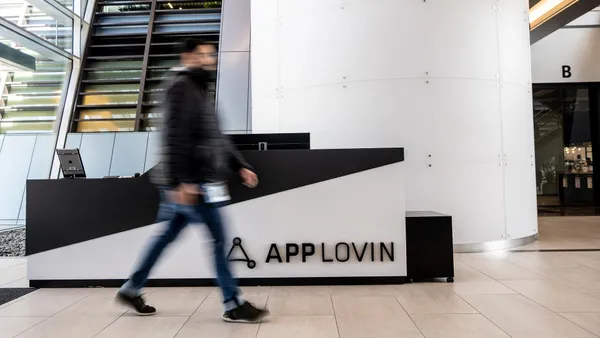Dive Brief:
- Facebook will begin offering first-party cookies on Oct. 24 for Facebook Pixel tracking to help advertisers continue targeting ads and measuring campaigns without having to rely on third-party cookies, Ad Exchanger reports. Marketers and publishers can update their settings in Events Manager.
- The option works by tacking a unique string of numbers onto a URL of a landing page when a user clicks on an ad served by Facebook. The opted-in first-party pixels on the site get integrated into the browser as a first-party cookie, included with data sent to Facebook. A first-party relationship must be established before any tracking or measurement occurs.
- Marketers will not be required to enable first-party cookies within Facebook, but not doing so will limit the information that Facebook will be able to share on campaign measurement.
Dive Insight:
According to Facebook, the move to offer first-party cookies for Pixel tracking aligns with other online platforms, and that the use of first-party cookies for ads and analytics is becoming preferred by certain browsers. The move comes as ad spending on Facebook has rebounded in the wake of the Cambridge Analytica scandal, but advertisers have seen a significant drop in ROI, according to a C3 Metrics analysis. In the wake of that scandal and reports of data misuse by other third-party data packagers, platforms and brands have tried to distance themselves from some of these companies while considering how to boost their use of first-party data. While first-party data offers the benefit of being owned by the marketer, it presents challenges because of the need to convince consumers to opt-in and in being able to track users once they leave the brand's site so as to enhance marketing efforts. Facebook is bowing to pressure to support the use of first-party data with its pixel news.
The new tool will help marketers better access data from Apple's Safari. Apple's Intelligent Tracking Prevention, launched last year to block cookies that don't have a first-party link to the user, has been a nuisance to Facebook, which has relied on third-party cookies to match website events from Apple's Safari users, measure conversions, optimize performance and build audience segments.
Mozilla has said it plans to debut a similar functionality in Firefox, while Microsoft and Google have launched first-party cookie tools to help marketers continue ad and analytics tracking in Safari, according to Ad Exchanger. While Facebook won't require advertisers to use the new first-party cookie solution, metrics around activity from Safari may be less detailed without it.
Facebook has been updating its ad platform and introducing new features to offer more transparency on the platform. In March, the company said it planned to shut down its Partner Categories program, which helped advertisers target ads based on third-party data. The platform also announced that it will begin requiring advertisers to tell users if data brokers provided the information that led to them being targeted with an ad.











